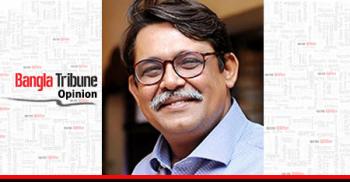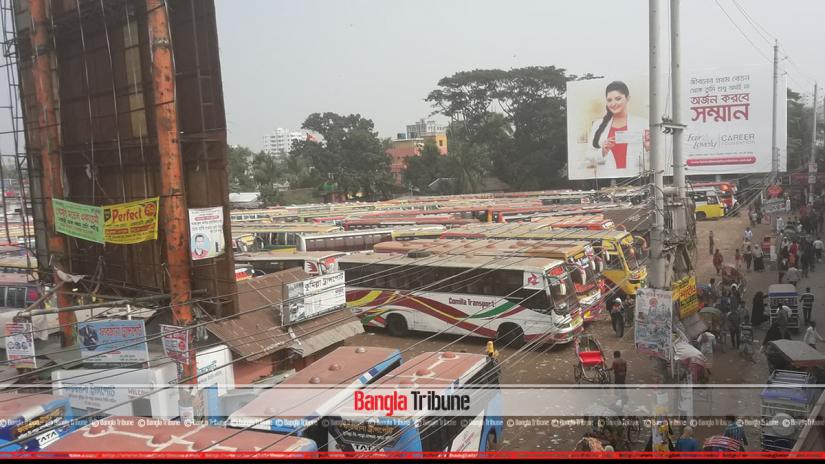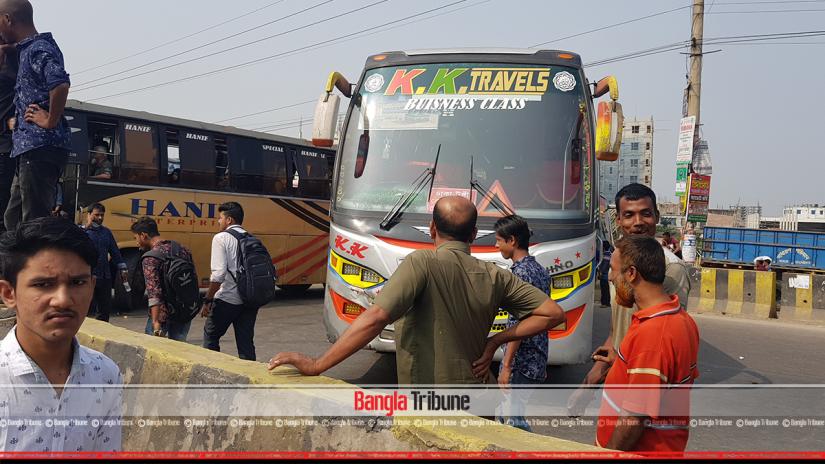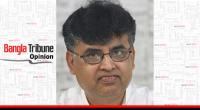 Unhappy about time extension of the new transport law’s implementation? No. However, any possible dilution of some of the important clauses will mean compromise. There must be no compromise in dealing with striking transport owners and workers. That is the view of the masses who suffer in the hands of people in the transport sector in multiple ways-------- from crushing people on the roads by reckless drivers and operators making profits illegally, especially by employing low paid, underage or untrained people.
Unhappy about time extension of the new transport law’s implementation? No. However, any possible dilution of some of the important clauses will mean compromise. There must be no compromise in dealing with striking transport owners and workers. That is the view of the masses who suffer in the hands of people in the transport sector in multiple ways-------- from crushing people on the roads by reckless drivers and operators making profits illegally, especially by employing low paid, underage or untrained people.
Surely at a time when the government has gone tough on corruption, it must not budge on the strikers “illogical” demands to amend tough clauses to stop murders on the roads on a regular basis and bring an overall discipline in this most corrupt sector.
It is a huge nexus of transport owners, drivers, staff and last, but very important, the state-owned Bangladesh Road Transport Authority (BRTA) which thrives on bribes at every step.
Some of those who went to the BRTA in recent days were victims of “dalals” who collected the bribe money on behalf of those government servants sitting inside the building. Thus among the first steps to make a new law workable and effective, the BRTA must be reorganized and its old dishonest staff sacked.
Why strike to make our transport sector a civilized one as we move to a greater level as a nation? Striking to make amendments to the tough law only meant they would not drive safely and would continue to murder or maim people on the streets.
 The government should remain firm and should not budge on the “illogical” demands of the transport owners and workers. Instead, it should put state-owned buses or even trucks to ferry people from one place to another. Privately owned buses and trucks might be requisitioned for a fortnight with security provided to help suffering commuters.
The government should remain firm and should not budge on the “illogical” demands of the transport owners and workers. Instead, it should put state-owned buses or even trucks to ferry people from one place to another. Privately owned buses and trucks might be requisitioned for a fortnight with security provided to help suffering commuters.
“The new law has been enforced to bring discipline on the roads. It is not designed to punish anyone,” Obaidul Quader made it clear. Then, why this recent indefinite strike was organised?
Officials said the strike was “illogical” as the law was old and had only been updated, besides it was discussed at length with the stakeholders and its implementation was put off for 14 days on their request.
What could be re-considered is the matter of fines. But not the clause for the death penalty as it was the main deterrent against reckless driving mostly bus drivers. Only the other day, 10 members of a wedding party were crushed as a speeding bus rammed the microbus they were travelling on. It was established the fault was bus driver’s who should be arrested and given at least life imprisonment since the law had been kept on hold until Jun 2020.
Seventy-four percent of road traffic deaths occur in middle-income countries, which account for only 53 percent of the world's registered vehicles. These countries also lack protective provisions for pedestrians or cyclists.
The reports identified 10 major reasons behind the rise of road accidents in Bangladesh
 At least 2,329 people, including 291 women and 381 children, were killed and 4,361 others injured in 2,159 road accidents across Bangladesh in the first half of 2019, according to the Shipping and Communication Reporters Forum (SCRF).
At least 2,329 people, including 291 women and 381 children, were killed and 4,361 others injured in 2,159 road accidents across Bangladesh in the first half of 2019, according to the Shipping and Communication Reporters Forum (SCRF).
The report, based on 38 dailies or news agencies and portals, said the road accidents took place on various highways, national, inter-district and regional roads between Jan 1 and Jun 30 across the country.
The bus owners give a rough look as they make millions without investing much to ensure a safe drive. Bus or truck drivers were often arrested for drunken driving or have been high on drugs. The helpers, they employed, were in their teens or 20s, who were told serve their “masters” and were without any knowledge of traffic rules. These helpers often take over the wheels as their “masters” take a break for sleep or fun.
Prime Minister Sheikh Hasina ordered the employment of a second driver to take over after eight hours of driving, but it fell on deaf ears.
The owners give out the buses on contracts fixing a daily deposit which makes the drivers speed and drive recklessly to ensure they had enough for the team after clearing the deposit.
Buses or trucks looked ugly with paints peeling off or operating with damaged bodies that looked equally ugly.
Thus the authorities must remain tough and finds ways to tame these transport sector’s musclemen as well as quickly enforce the new transport law.
Nadeem Qadir is the Consulting Editor, Daily Sun and a UN Dag Hammarskjöld fellow.


